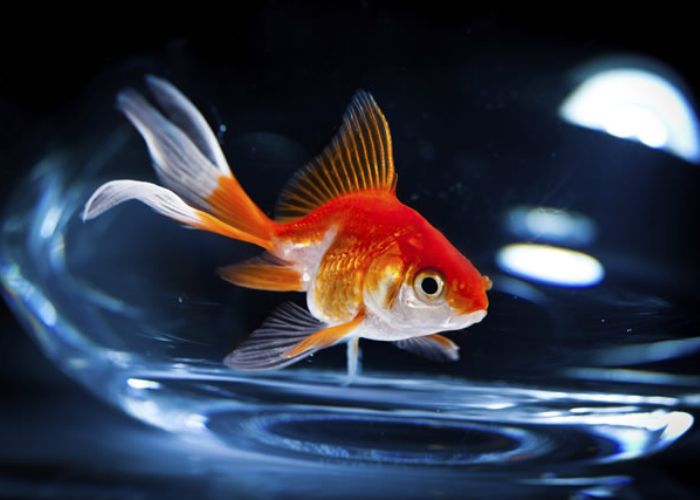Fish owners came up with various tragic issues; one of the issues is that the aquarium fish are not eating the foodstuff. Why does this happen? There can be several reasons associated with it. We are here writing this to you for the convenience of fish-owning activity.
Why aquarium fish is not eating? To make things clear for you, it can be due to several reasons. Inadequate water quality, temperature consideration, territorial habitat, pH fluctuations, and many other perspectives contribute to this. It sometimes becomes a source of disease outbreaks. If you notice that your fish stop eating the food, you might have to look at all the points mentioned above to make the atmosphere reliable to stay for the fish with the proper eating schedule
How to make the condition back to normal and control these fluctuating situations in the aquarium? So that the fish start eating as before. Here we present a handy informational guide about the primary concern.
Table of Contents
Why Aquarium Fish is Not Eating?
Whenever your fish refuse or refuse to eat, it is an apparent gesture that they are in trouble and you have to make specific changes. If your fish is not eating the food, it might be due to one of the following reasons.
Unsuitable Food
At the beginning level, you are not that expert in dealing with the aquarium or fish, so it is better to seek professional help. In this situation, some people who are not that aware of the food might face the difficulty that their fish do not eat the food they present.
After seeking appropriate feeding knowledge, you have to present them with essential but good quality frozen or dried food. Every fish has different food demands, so it is better to learn the feeding schedule of the fish you are having.
Inadequate Temperature Conditions
The fluctuation in the temperature inside the aquarium is the possible reason the fish are not eating the foodstuff.
Thus you have to manage the temperature of the aquarium as per the need and requirements of the aquarium. Most commonly, the temperature required for the aquarium falls from 23° to around 26.5°C
- When the temperature falls below this consideration, the metabolism situation for fish also lowers. This drop in metabolic activity is not considerable because, like humans, fishes can not regulate their body temperature as per the outside condition. If the temperature condition is not suitable for longer, it might lead to severe starvation and hunger issues.
- On the other hand, if the temperature condition exceeds the limit. The fish inside the aquarium becomes hyperactive. They will feel overstressed, and the oxygenation problems will be unreliable for eating habits.
Bad Water Quality
Along with other significant perspectives, the bad water quality and inappropriate aquarium cleaning are other factors in why aquarium fish is not eating.
If you do not keep the aquarium clean, the water gets degraded, which spoils the overall atmosphere of the aquarium. When water gets dirty and is not changed for weeks, it will promote the growth of nitrates.
Along with the growth of nitrates, the oxygen level decreases, providing an atmosphere that is hard to bear for the fish. Thus the fishes stop eating to promote further dirt and irrelevant aspects.
Bad Lightening
As it has been stated above, the fishes are different in terms of their feeding schedules. Some of the fishes tend to feed in the daylight only. So whenever the required light consideration falls off the specific demand, the fish gets confused about taking the food product in.
Thus they stop eating in these low-light conditions. For such species of the fishes, it is better to maintain the lighting device or other required filters around the aquarium.
Not only this, you must consider various other related parameters for the appropriate and reliable atmosphere in the aquarium.
Water Quality and pH Factor
When it comes to water specifically, you must consider the pH and hardness.
If any of these parameters will get uncertain, you will notice apparent changes in the responding behaviors of fish. For the hardness and pH factor of the water quality, it is crucial to obtain the optimum level so that the conditions and habitat won’t deviate from regular things.
In this case, if you want your fish to feed on a regular pattern, it would be very worth checking up or monitoring things regularly by correcting the deviation of water precisely. So that you can effectively resolve the food-eating perspectives of the fish.
Diseases in the Fishes
Sometimes everything inside the aquarium is perfect. The water factor, temperature, pH management, and all other cleaning points are highly defined. In that situation, you might go for a fish checkup. There might be a great chance that your fish is suffering from a disease.
Keep on checking the fish regularly. Thus, whenever you notice any change and ill alignment in the fish, it is undoubtedly reliable to separate it from the other fishes. In terms of treatment, general contagion drugs are also very effective.
These diluted drugs mix with the water to improve the overall health perspectives. It is highly efficient when you suspect any epidemic.
The Final Statement
Fishes are susceptible, versatile, and fascinating animals. Most people have a strong attachment with their fish, so whenever you notice that your fish are not eating appropriately, you must be clear about all the possibly occurring situations.
To cover this query, we have tried to summarize most general factors about why aquarium fish is not eating. So that if you are going through any related issues, you might get familiar with the primary reasons.

Lena Whitmore is the lead writer at FishClans.com, bringing over 10 years of fishkeeping expertise and a master’s degree in Marine Biology to the site. Her extensive knowledge and practical tips have established her as a respected authority in the aquarist community. Lena’s work has appeared in leading publications and she frequently speaks at industry events.
Connect with Lena and FishClans on Facebook, Pinterest, and Instagram.

